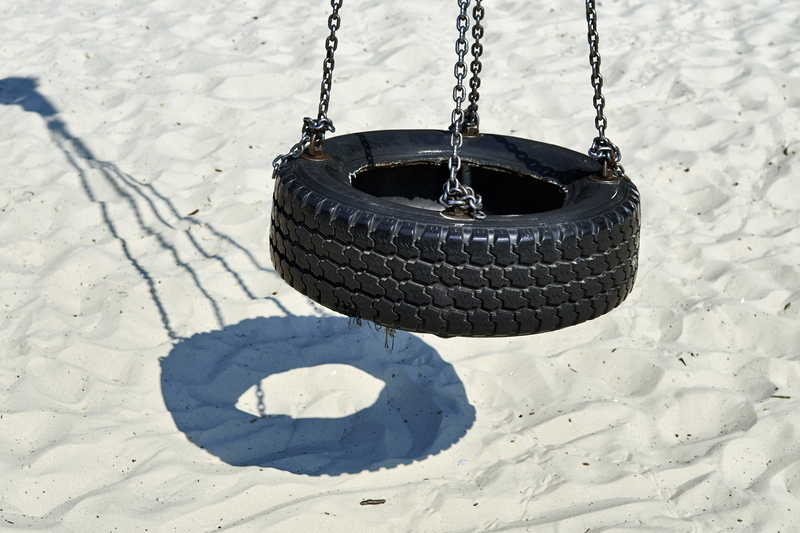
Curious Glass Recycling Facts to Ponder Over
Welcome to a deep dive into the fascinating world of glass recycling! In an era where environmental consciousness is at the forefront, understanding how to effectively recycle glass can make a big difference. Unlocking the mysteries behind this process reveals not only surprising facts but also the vital role it plays in preserving the environment. Let's explore some curious glass recycling facts that you might not know yet.
Why is Glass Recycling Important?
Before diving into the surprising facts, it's essential to understand why glass recycling is crucial. The process allows us to reduce pollution, conserve natural resources, and decrease landfill waste. Here are some reasons why glass recycling matters:
- Conservation of Resources: Recycling glass saves raw materials like sand, soda ash, and limestone.
- Energy Efficiency: It takes less energy to produce recycled glass than to manufacture new glass from raw materials.
- Pollution Reduction: Recycling reduces air and water pollution.
- Infinite Lifecycle: Unlike other materials, glass can be recycled indefinitely without losing quality.
A Brief History of Glass Recycling
The journey of glass recycling dates back to ancient times. Archaeological evidence suggests that people reused glass materials more than 3,000 years ago. However, modern glass recycling systems began in the 1970s, aligning with rising environmental awareness.
Intriguing Facts About Glass Recycling
Let's delve into some fascinating facts about recycling glass that showcase how valuable and versatile this process is:
The Unending Loop
One of the most exciting aspects of glass recycling is its ability to be recycled endlessly without degradation. This means that the glass bottle you recycle today could become a new glass bottle over and over again, preserving its quality through each cycle.
Time-Saving Potential
Did you know that recycling a single glass bottle saves enough energy to power a 100-watt light bulb for four hours? This translates into significant energy savings when multiplied by the billions of glass containers recycled each year.
Environmental Impact
Recycling glass plays a pivotal role in protecting our planet. For every ton of glass recycled, over a ton of natural resources are saved. Additionally, recycling glass reduces carbon dioxide emissions by approximately 7.5% per ton used in the manufacturing process.
The Vibrant World of Glass Colors
Glass containers come in various colors such as clear, green, and brown. Each color serves different functions and must be separated during the recycling process. Although there are limited options for recycled green glass, clear and brown glass hold significant potential for reuse across industries.
Culinary Comeback
Beyond the typical bottle-to-bottle journey, recycled glass can make a surprising return in the kitchen. Ground recycled glass is sometime used as countertops, demonstrating the versatile nature of recycled glass in modern applications.
Challenges Faced in Glass Recycling
Despite the numerous advantages of glass recycling, the practice faces challenges that need to be addressed:
- Contamination Woes: Mixed materials, like ceramics and metals, can contaminate glass recycling streams.
- Economic Viability: In some regions, the cost of recycling glass is higher than manufacturing new glass, affecting its economic feasibility.
- Infrastructure Limitations: Not all regions have access to efficient glass recycling facilities and technologies.
The Role of Consumers in Glass Recycling
Consumers play a crucial role in ensuring efficient glass recycling. Here's how you can contribute:
Stay Informed
Understand your local recycling guidelines. Not all types of glass can be recycled in residential collection programs. By knowing what's accepted, you can help reduce contamination.
Reduce, Reuse, Recycle
Adopt the three 'R' mantra in daily life. Reducing glass use and reusing products can markedly decrease waste, further supplemented by diligent recycling practices.
Advocate for Change
Support policies and initiatives that promote the expansion and improvement of recycling facilities. Raise awareness within your community to encourage peers to recycle more.
Innovations in Glass Recycling
Advancements in technology continue to reshape the landscape of glass recycling:
Innovative Processing Techniques
New methods are emerging that can efficiently separate glass from other waste, addressing contamination issues and increasing recycled glass quality.
Smart Recycling Bins
Smart recycling receptacles that use AI technology are being introduced in urban areas to assist in sorting materials, reducing human error, and increasing overall recycling rates.
Creative Repurposing Ideas
Beyond traditional recycling, creative projects and artworks are embracing repurposed glass, turning waste into aesthetically pleasing and valuable items.
The Future of Glass Recycling
The future of recycling glass is promising, with ongoing research and policies tilting towards a sustainable ecosystem:
Policy Improvements: Enhanced legislation is being introduced worldwide, encouraging increased recycling through incentives and penalties.
Public Awareness Campaigns: With growing awareness campaigns, individuals are becoming more enthusiastic and educated about recycling, driving higher participation rates.
In concluding our exploration of glass recycling, it's clear that the practice not only conserves resources and energy but also provides a cornerstone for planet-friendly living. With strides in technology and an increasing push for sustainability, there are more reasons than ever to advocate for and actively participate in glass recycling efforts.
The compelling world of glass recycling invites us all to ponder deeper about our role in promoting environmental sustainability and the actions each of us can take today to foster a greener future.
